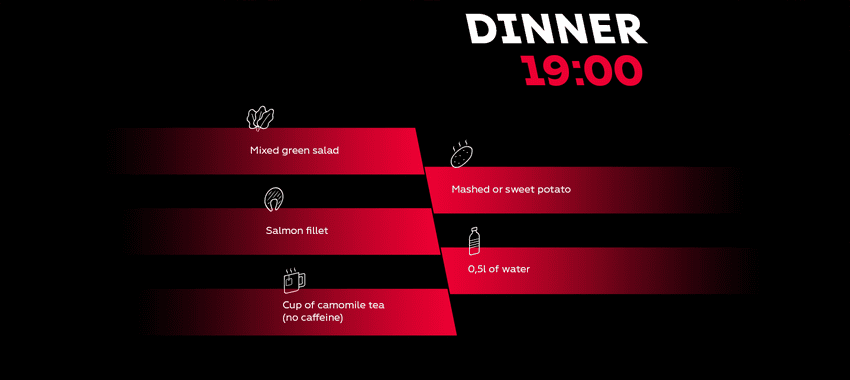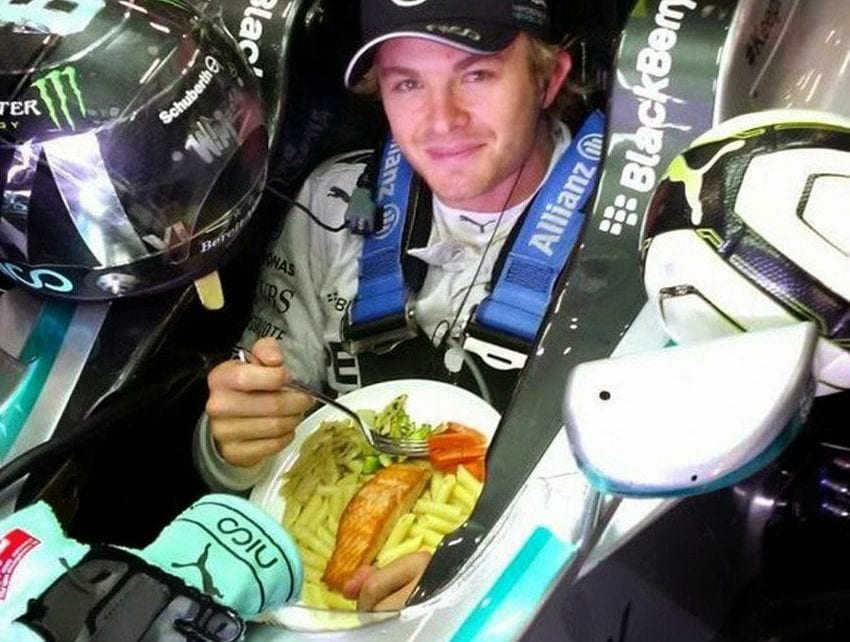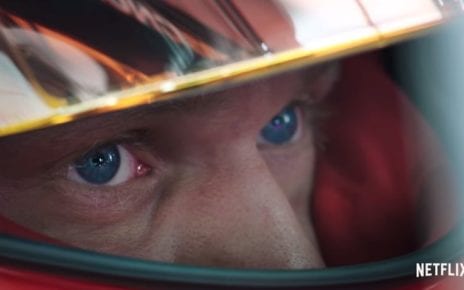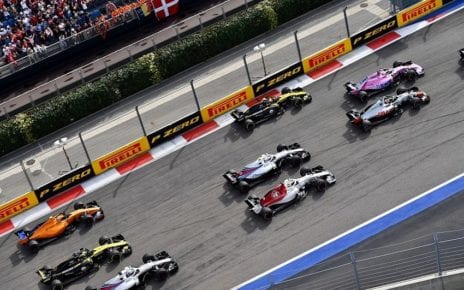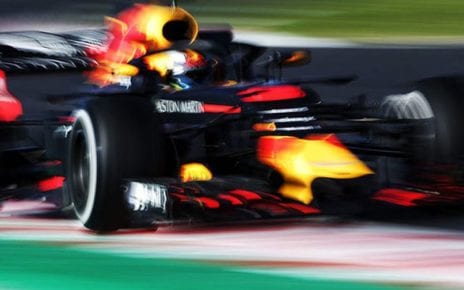Just like any other top athletes, Formula One drivers have to follow a strict dietary regime in order to stay in shape and be competitive. Maintaining a set weight maybe even more important for F1 pilots than, say, football players. If Messi goes few pounds above or below, it probably isn’t that big of a deal, but if any Formula One driver does that, then the entire fuel plan for the race has to be reworked.
Most of their food intake consists of whole natural foods. Only the highest quality of protein sources like milk, meat, poultry, eggs, and fish, fat sources like fatty fish and egg yolk and carbohydrate sources like quinoa, brown rice, berries, and vegetables are considered when a nutrition plan is being created.
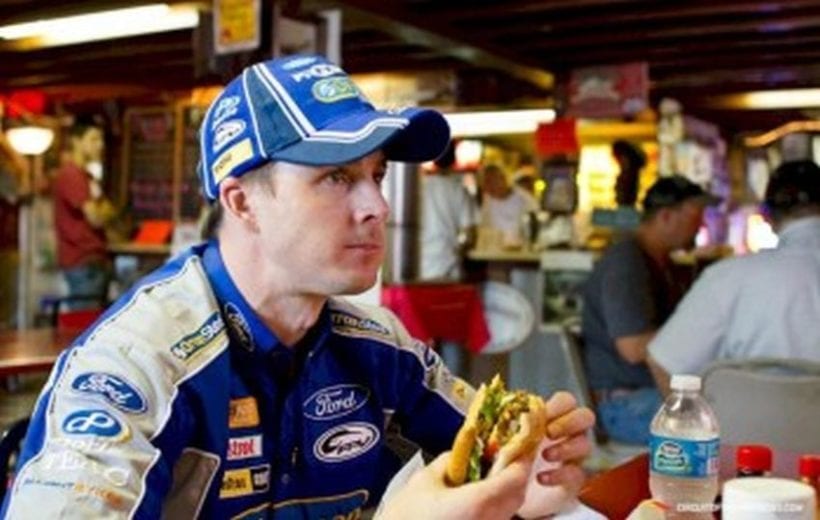
The exact formula depends on their nutritionists’ and their daily energy consumption, but most of them will aim for 1.5-2.0 grams per kilogram of body weight per day of protein, 1.0-1.5 g/kg/day for fat, and 3-7 g/kg for carbohydrates. Each driver takes plenty of supplements to ensure the steady supply of microelements their body needs and these are rigorously tested to avoid any prohibited substances.
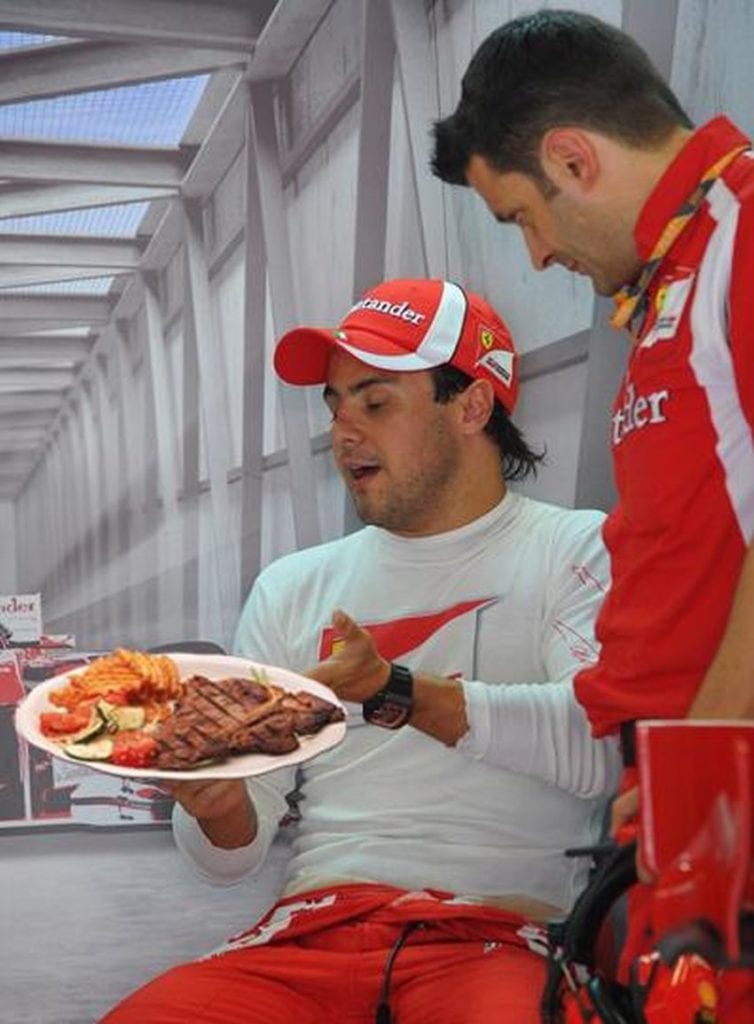
Naturally, the race weekends are when drivers expend the most energy and their diet reflects this. A typical breakfast would consist of three eggs omelet or scrambled eggs, fresh and raw vegetables, porridge with berries, nuts, chia seeds, and honey, half a liter of water, cup of coffee, and multivitamins and Omega 3 capsules. The first practice season is at 10 o’clock and during it, drivers would consume electrolytes, water, and sports drinks in order to replenish lost fluids.
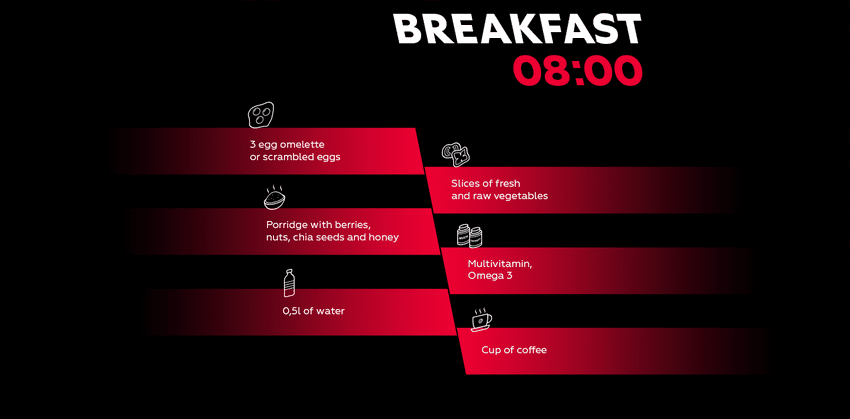
Lunch would be served at 12 o’clock and would include chicken, quinoa, broccoli, avocado, berries, and water. All these are selected due to their low glycemic values and ease of digestion. This way sugar spikes which can adversely affect drivers’ performance are avoided.
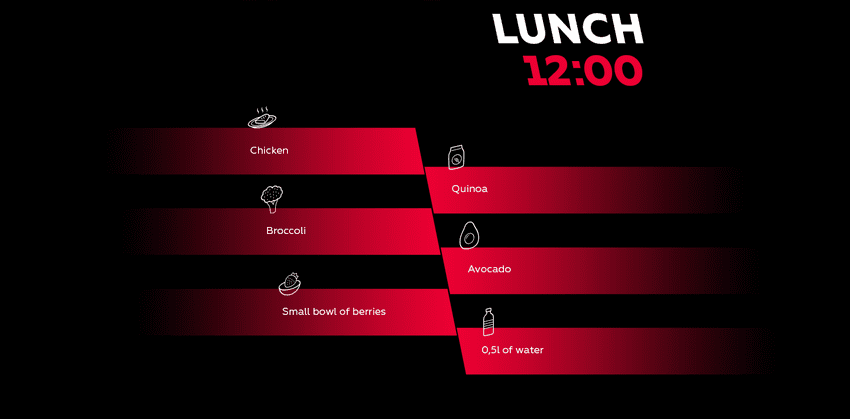
During the second practice at 14:00, drivers will continue to drink fluids, usually 0,5-1l of fluids.
After the practice, drivers are served a light snack at 16:00. It usually consists of protein shake, Greek yogurt with oats and honey, and water. This meal is focused on regeneration after the practice, hence the protein shake.
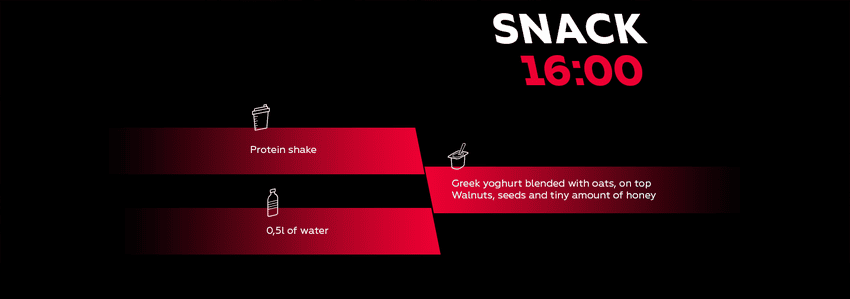
Dinner is at 19:00 and drivers will be served the mixed green salad, mashed or sweet potato, salmon fillet, 0.5 liters of water and chamomile tea. The tea is selected because it doesn’t contain caffeine and has a soothing effect on sleep, helping drivers recover and prepare for another day of grueling driving.
